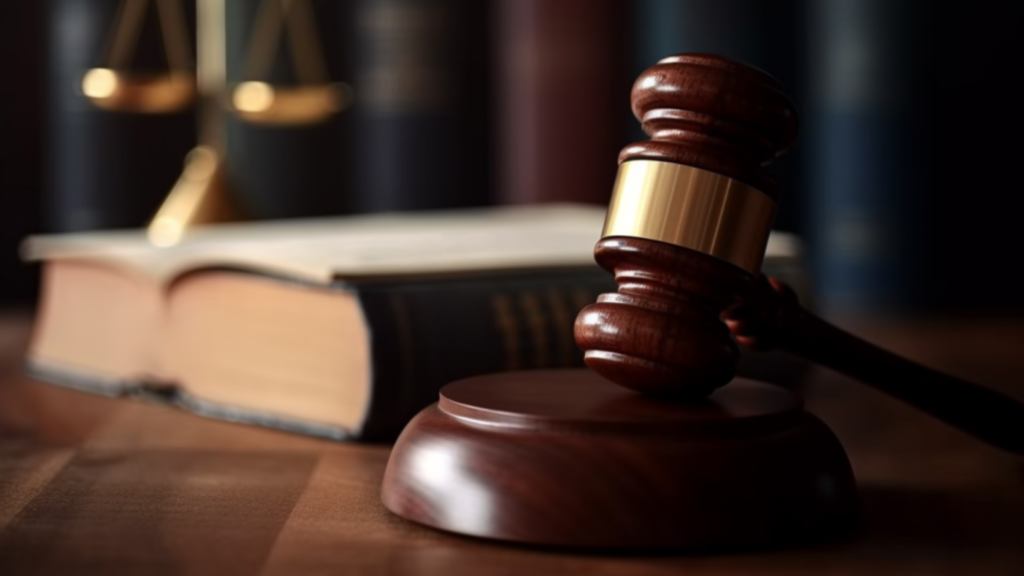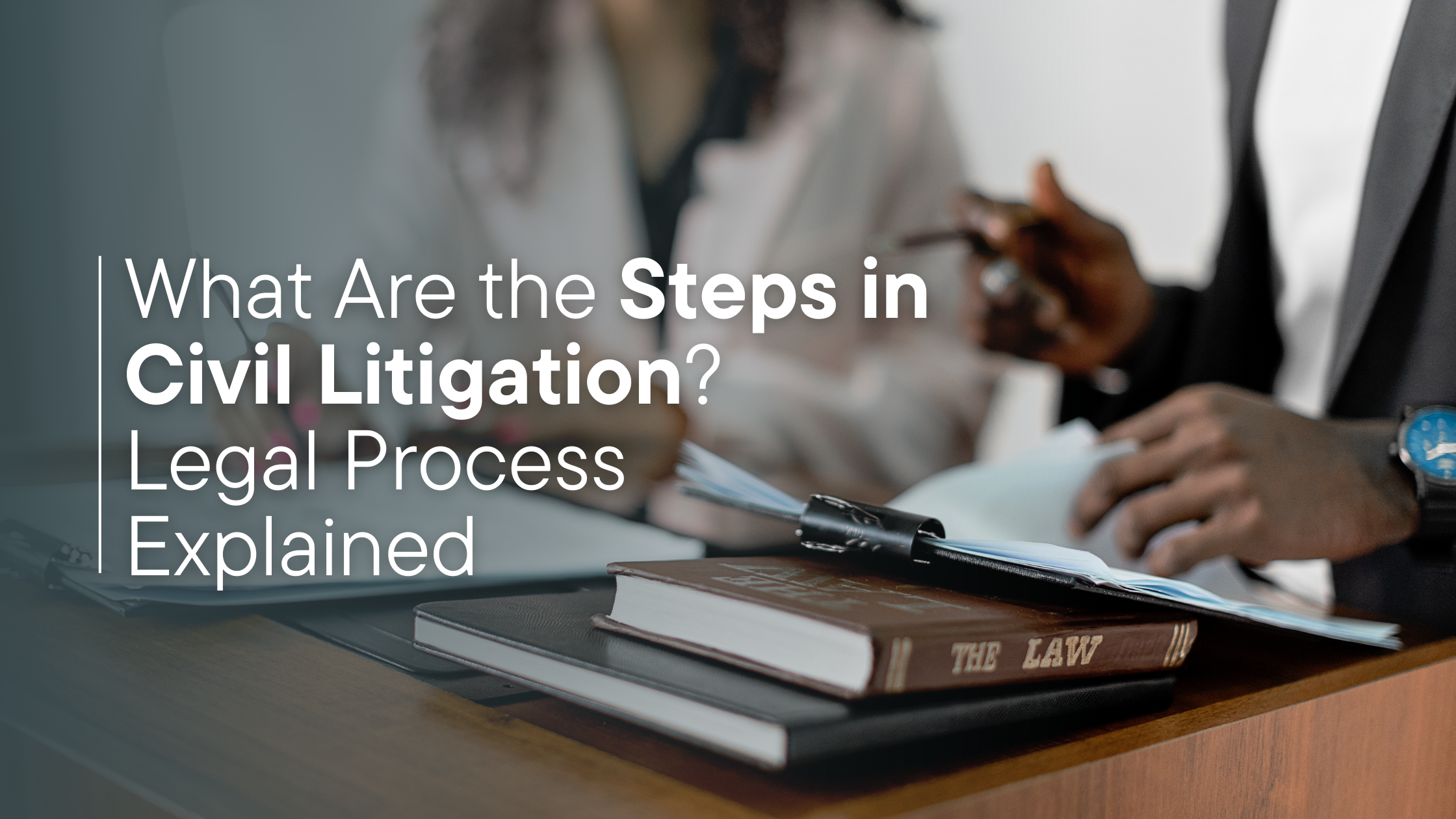Facing a complex legal dispute can be overwhelming, especially when you’re unsure about what lies ahead. At Barli & Associates LLC, we understand that navigating civil litigation can be challenging, but we’re here to guide you through the process with clarity and confidence. This post will break down the steps of civil litigation, ensuring you feel informed and empowered as you proceed with your case.
1. What is Civil Litigation?

Civil litigation refers to the process of resolving legal disputes between individuals, businesses, or other entities in a court of law. Unlike criminal cases, where the government prosecutes someone for breaking the law, civil litigation is typically about one party seeking compensation or resolution from another party.
Common examples of civil litigation include:
- Contract disputes: When one party fails to meet the terms of an agreement.
- Personal injury: Seeking compensation for accidents or injuries caused by negligence.
- Family law issues: Including divorce, child custody, and other matters.
2. The Initial Consultation

The first step in any civil litigation case is to meet with an attorney for an initial consultation. This is your chance to explain the details of your situation and learn about the potential legal remedies available to you. A skilled attorney will assess the merits of your case and explain the next steps, ensuring you understand your options and feel confident in the path forward.
At Barli & Associates LLC, we pride ourselves on taking a client-centered approach, listening carefully to your needs, and offering tailored advice. If you’re uncertain about your legal situation, an initial consultation can provide the clarity you need.
3. Filing the Complaint

Once you’ve decided to move forward, your attorney will help you file a complaint (also called a petition) with the court. This legal document outlines your claims against the defendant and the legal basis for your case. It also specifies what you’re seeking from the defendant, such as monetary damages or a court order.
The complaint must be filed with the appropriate court based on the nature of your case and its location. Your attorney will handle the details of this filing, ensuring everything is in order so you can focus on other aspects of your life.
4. Service of Process

After the complaint is filed, it must be served to the defendant. This means they must be formally notified of the lawsuit and provided with a copy of the complaint and a summons. The service of process is a critical step, as it ensures that the defendant is aware of the legal action and has the opportunity to respond.
Proper service of process is required by law. If the defendant is not properly notified, the case could face delays or even be dismissed.
5. Defendant’s Response

Once the defendant has been served, they have a set amount of time to respond to the complaint. This response may take several forms:
- Answer: A written response that admits or denies the allegations.
- Motion to Dismiss: A request to have the case thrown out on legal grounds.
- Counterclaims: If the defendant believes you are at fault, they may file a counterclaim against you.
If the defendant does not respond within the allotted time, the court may issue a default judgment in your favor.
6. Discovery Phase

The discovery phase is when both parties exchange information to understand the facts of the case. This process is crucial for gathering evidence and strengthening your legal position. It includes:
- Interrogatories: Written questions that must be answered under oath.
- Depositions: In-person interviews where witnesses or parties are questioned under oath.
- Requests for documents: Asking the other party to provide relevant documents.
Through discovery, you gain insight into the opposing side’s case, allowing you to develop a stronger strategy.
7. Pre-Trial Motions

Before the trial begins, either party can file pre-trial motions to address specific issues. Common motions include:
- Motion for Summary Judgment: Asking the court to rule in favor of one party based on the evidence without needing a trial.
- Motion to Dismiss: Requesting the case be dismissed for legal reasons.
These motions can significantly impact the outcome of a case, potentially resolving the dispute before it even reaches trial.
8. The Trial Process

If the case is not settled or dismissed through motions, it moves to trial. During the trial:
- Opening Statements: Both parties present their arguments and outline their case.
- Presentation of Evidence: This includes witness testimonies, documents, and expert opinions.
- Closing Arguments: Each party makes their final appeal to the judge or jury.
The trial can be complex, and it’s essential to have a seasoned attorney advocating for your interests every step of the way.
9. The Judgment

Once the trial concludes, the judge or jury will render a verdict. This is the official decision in the case. Depending on the outcome:
- If you win, the court will issue a judgment in your favor.
- If you lose, you may be required to pay damages or comply with other legal requirements.
It’s important to understand that a judgment can be appealed by the losing party.
10. Appeal Process

If you’re dissatisfied with the judgment, you may be able to file an appeal. This process allows a higher court to review the decision and determine if legal errors were made. While appeals don’t involve re-trying the case, they focus on whether the law was applied correctly.
The appeal process is time-sensitive, and your attorney will ensure that all deadlines are met for filing an appeal.
11. Enforcement of Judgment
If you win your case, you may still face challenges in collecting the awarded damages. Enforcing the judgment involves actions like:
- Wage garnishment: Directly taking a portion of the losing party’s wages.
- Property liens: Placing a legal claim on property owned by the losing party.
At Barli & Associates LLC, we ensure that winning a case isn’t the end of the journey—we help clients enforce their rights effectively.
Conclusion:
The civil litigation process can seem daunting, but understanding each step is key to navigating your case with confidence. Whether you’re dealing with a contract dispute, personal injury case, or family law matter, Barli & Associates LLC is here to guide you through every phase.
Let us stand by your side during this challenging time. Reach out to us today to schedule a consultation and start resolving your legal challenges with a trusted, experienced team. Contact Barli & Associates LLC for personalized legal guidance.





